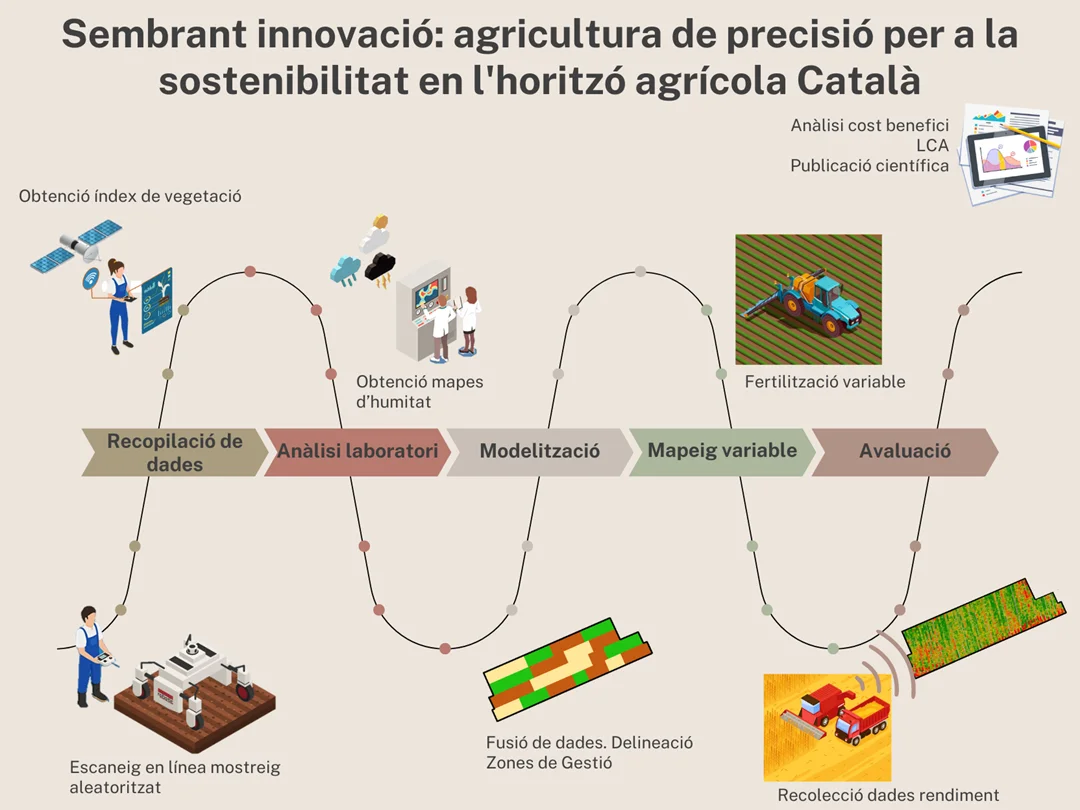Research projects
Sowing innovation

Precision agriculture for sustainability in Catalonia’s agricultural horizon

The project proposes two nitrogen fertilisation strategies to improve nitrogen use efficiency. Using precise data on plant status obtained from soil sensors, satellite imagery and artificial intelligence techniques, among others, fertiliser performance will be optimised and its environmental impact reduced.
The project explores the efficient use of nitrogen in agriculture—an essential nutrient but often overused, leading to environmental issues such as water and soil contamination. These challenges are particularly relevant in Catalonia, where nitrate pollution and climate change severely affect agriculture. It is therefore necessary to improve fertilisation methods to mitigate these impacts.
The BETA Technological Centre of the University of Vic–Central University of Catalonia leads this project, in collaboration with the IEEC. Researchers will compare traditional uniform-rate nitrogen fertilisation with two variable-rate fertilisation strategies: the Robin Hood approach (higher doses in less fertile areas) and the Kings’ approach (higher doses in more fertile areas).
The approach uses advanced technologies, including soil sensors, satellite imagery (from Sentinel-2, Menut and SMOS) and artificial intelligence techniques, to obtain precise data on soil moisture and plant status, such as the NDVI vegetation index. This enables more precise fertilisation planning, adapting to the spatial and temporal variability of fields, while optimising yield and avoiding environmental risks.
This initiative forms part of the 2023–2027 CAP Strategic Plan, co-funded by the Ministry of Agriculture, Fisheries and Food, the European Union, and the Government of Catalonia.
TEAM
With the support of



